In a dramatic ceremony marked by celebratory fireworks over the Capitol, the U.S. Senate has cast a decisive vote—62 to 30—in favor of John Phelan’s confirmation as the next Secretary of the Navy. This bold, bipartisan decision comes at a critical juncture for the Navy, which has struggled for years with issues ranging from ballooning costs and stalled shipbuilding projects to failed audits and workforce challenges. Phelan, a seasoned Florida businessman with an extensive background in finance and private equity, now stands poised to lead sweeping reforms aimed at modernizing and streamlining one of America’s most vital defense institutions.
This article provides a detailed analysis of John Phelan’s background, the dynamics of his Senate confirmation hearing, and his comprehensive strategic plan for overhauling Navy operations. We will explore the reasons behind his nomination, how his fresh perspective from the private sector is anticipated to inject new vitality into outdated systems, and the broader implications of his appointment for military policy and public-sector management.
I. A Historic Vote and a New Direction
The confirmation vote—an impressive 62–30 margin—reflects a growing consensus in Congress that the Navy must embrace innovative management practices to address its long-standing challenges. While some critics initially raised concerns over Phelan’s lack of military experience, the overwhelming bipartisan support suggests that lawmakers across the political spectrum are willing to look beyond traditional backgrounds in favor of effective leadership and a results-oriented approach.
In a time when defense budgets are under intense scrutiny and operational inefficiencies threaten to undermine national security, appointing a leader with an outsider’s perspective is seen by many as a necessary step. The resounding vote and the jubilant celebrations outside the Capitol, complete with fireworks, captured a moment of optimism among supporters who believe that real reform is on the horizon for the U.S. Navy.
II. John Phelan’s Journey from Business to Defense Leadership
A. A Proven Record in the Private Sector
John Phelan is no stranger to high-stakes decision-making and fiscal management. Best known as the founder of Rugger Management LLC—a private investment firm headquartered in Florida—Phelan has built a formidable reputation as an astute financial strategist. His previous role as managing partner at MSD Capital, a highly regarded private equity firm, showcased his ability to navigate complex financial markets, implement rigorous oversight, and drive operational efficiencies under pressure.
Phelan’s deep dive into the world of large-scale investments and corporate governance has made him a respected figure in business circles. His ability to identify inefficiencies and streamline operations is exactly the kind of expertise that critics say the U.S. Navy desperately needs. By applying the cost control measures and accountability standards perfected in the corporate arena, Phelan is expected to overhaul the Navy’s management practices and secure the institution’s future in an increasingly competitive global environment.
B. Political Involvement and Bipartisan Appeal
Although Phelan does not possess formal military credentials, his political involvement has helped to bridge that gap in the eyes of many lawmakers. As a major donor to former President Trump’s campaign, he has earned the attention of political stalwarts and has built alliances that extend across party lines. During the confirmation process, senators from both parties stressed that while traditional military experience is valuable, the pressing issues facing today’s Navy demand innovative, unconventional thinking.
His nomination has been perceived as a symbol of progressive change—a move towards a leadership style that harmonizes private-sector efficiency with public service responsibilities. In a climate where defense spending is constantly scrutinized and every dollar must be justified, Phelan’s track record in managing sizeable financial portfolios gives him a distinct advantage. Lawmakers believe his business acumen is precisely what is needed to rein in cost overruns, revitalize delayed programs, and enforce accountability across the board.
III. The Senate Confirmation Hearing: Addressing Concerns and Charting a Course for Reform
A. An In-Depth Examination on Capitol Hill
Phelan’s confirmation hearing, convened on February 27, became a showcase for his clear commitment to tackling the Navy’s systemic inefficiencies head-on. Members of the Senate Armed Services Committee grilled him on a wide array of issues ranging from the prolonged and costly shipbuilding projects to the recurring audit failures that have plagued the department. Throughout the hearing, Phelan remained measured, acknowledging the enormity of the Navy’s challenges and emphasizing that his role would be to confront and dismantle long-standing bureaucratic inertia.
Senators from both sides of the aisle, while cautious about his unconventional background, expressed cautious optimism that his fresh perspective could drive meaningful change. Many agreed that despite lacking military experience, his proven skills in financial management and operational turnaround would be invaluable when applied to reforming a large, historically rigid bureaucracy.
B. Reform and Efficiency: Phelan’s Vision Unveiled
During his testimony, Phelan did not shy away from enumerating the Navy’s numerous shortcomings. He painted a vivid picture of an institution burdened by extended deployments, crippling cost overruns, outdated maintenance practices, and delayed shipbuilding projects. “Our shipbuilding programs are years behind schedule, and major projects like submarines and aircraft carriers are plagued by escalating costs,” he stated candidly. For Phelan, these challenges represent not just operational failures but systemic inefficiencies that need bold, decisive action.
Central to his approach is a promise to conduct an immediate, thorough review of all ongoing contracts and audit reports. Phelan pledged to sit down with top Navy officials on day one to scrutinize every contract, identify areas of waste, and propose modifications aimed at achieving greater transparency and cost efficiency. “We need to know which contracts can be reworked for better savings and which areas are ripe for oversight reforms,” he asserted.
C. Shipbuilding: A Critical Frontier in Modernizing the Navy
A significant focus during the hearing was on the Navy’s problematic shipbuilding programs, especially the Constellation-class frigate initiative. Phelan was forthright in his criticism of the current system, citing major delays and budget issues that have hampered the Navy’s ability to maintain its fleet. His strategic blueprint involves not only renegotiating existing contracts but also initiating a rigorous evaluation process for all future projects.
“I plan to work closely with the Secretary of Defense to ensure that every shipbuilding contract is as efficient and transparent as possible,” Phelan promised. His commitment to restoring operational excellence in shipbuilding reflects a broader vision: to re-establish the Navy as a modern, agile force capable of meeting both current and future national defense needs.
D. Balancing Tradition with Urgent Innovation
In addressing concerns about his lack of military experience, Phelan underscored that his role is not to upend every tradition of the Navy but to inject innovation where it is most needed. “I deeply respect the Navy’s storied history, but we must adapt to survive,” he said. His goal is to build on the strengths of the current system while eliminating the practices that have long hindered progress. This balanced approach—honoring the past while forging a path for a more dynamic future—has won him cautious support among those who once doubted the wisdom of a business-minded appointee leading the Navy.
IV. Confronting Systemic Challenges: Phelan’s Roadmap for Change
A. Extended Deployments and Service Member Welfare
One of the most urgent challenges confronting the Navy is the stress induced by extended deployments. Phelan highlighted the debilitating impact that prolonged separation from families and the relentless pace of military life have on sailors. “The high rates of suicide and chronic burnout among service members are direct consequences of overextended deployments and inadequate support systems,” he noted. His plan includes not only operational reform but also initiatives aimed at improving quality of life for those serving in the Navy. Enhancing crew rest cycles, modernizing housing, and expanding mental health resources are among the measures he believes will restore morale and operational readiness.
B. Tackling Cost Overruns and Fiscal Inefficiency
Cost overruns have long been a sore point for the Navy, especially in large-scale programs such as shipbuilding. Phelan’s expertise in financial management positions him well to confront these issues head-on. He explained that his initial focus would be on a comprehensive audit of the Navy’s current and future expenditures. “We must hold every contract to stringent oversight standards to prevent wasteful spending,” he declared. His proposed reforms include tighter budgeting practices, renegotiation of contracts to incorporate performance-based incentives, and the elimination of redundant processes that drain resources without delivering results.
C. Overcoming Delayed Projects and Infrastructure Shortcomings
Delays in shipbuilding and other capital projects have not only affected the Navy’s operational capabilities but have also eroded public trust. Phelan’s strategic review extends to all facets of project management. He plans to leverage private-sector best practices—where timely delivery and cost management are non-negotiable—to set up a parallel framework within the Navy. His vision is to create a system where accountability is central, and each project milestone is meticulously measured against performance targets. “Our goal is simple: every major project should be delivered on schedule and within budget, ensuring that our naval forces are equipped for the challenges ahead,” he emphasized.
D. Addressing Workforce and Infrastructure Challenges
Beyond financial and operational issues, the Navy faces significant challenges with its infrastructure and its human capital. Aging facilities, substandard living quarters for service members, and recruitment challenges all combine to sap the effectiveness of an otherwise formidable institution. Phelan’s comprehensive approach includes not only overhauling contract management but also investing in workforce welfare. His proposals call for enhanced training programs, improved recruitment initiatives, and immediate steps to upgrade the Navy’s deteriorating infrastructure—measures that aim to support the personnel who are at the heart of every successful mission.
V. A Strategic Vision: Integrating Private-Sector Efficiencies
A. Bringing Business Acumen to Military Challenges
John Phelan’s transition from the private to the public sector embodies a growing trend: the infusion of business techniques into government management. His experience in private equity and investment has equipped him with the analytical tools necessary to identify inefficiencies and implement cost-saving measures in large organizations. Phelan envisions a U.S. Navy that not only meets its strategic objectives but does so in a lean, accountable manner. This integration of private-sector practices—such as performance-based budgeting, risk management, and streamlined procurement processes—could revolutionize how the Navy operates and allocate resources more effectively.
B. Enhancing Transparency and Accountability
One of the cornerstones of Phelan’s vision is to instill a culture of transparency and accountability. His strategic priorities include revising long-standing procurement procedures and enforcing new audit standards that leave no room for mismanagement. By committing to an immediate review of every existing contract, he aims to identify and eliminate wasteful practices that have long contributed to the Navy’s fiscal challenges. This approach, if implemented successfully, will not only restore the trust of congressional oversight committees but also reinforce the Navy’s accountability to taxpayers.
C. Modernizing Operational Practices
Phelan’s plan for reform is comprehensive. It addresses not only the financial aspects of the Navy’s operations but also the need for modernized practices in logistics, maintenance, and personnel management. His forward-thinking initiatives include the adoption of digital technologies to monitor contract performance and the deployment of advanced data analytics to forecast budgetary needs. By transforming these traditional areas with modern, agile solutions, Phelan intends to propel the Navy into an era of innovation that is more responsive to the evolving landscape of modern warfare.
VI. Political and Public Reactions: Bipartisan Support and Constructive Criticism
A. Bipartisan Endorsement and Optimism
The Senate’s 62–30 confirmation vote stands as a testament to the bipartisan appeal of Phelan’s candidacy. Many lawmakers, regardless of party affiliation, expressed optimism that his outsider perspective and financial expertise will drive the necessary reforms within the Navy. “John Phelan represents a fresh, results-oriented approach that our defense establishment sorely needs,” one senator remarked during the post-vote press briefing. His nomination has generated hope that significant operational improvements and cost savings will soon follow—key goals for a defense department under constant scrutiny.
B. Concerns Over Military Experience: A Divided View
Despite the overwhelming support, some critics remain apprehensive about the prospect of a business executive leading one of the nation’s largest military institutions. Questions persist about whether Phelan’s expertise in private finance can fully compensate for his lack of direct military experience. During the confirmation hearing, several senators pressed for assurances that his strategies would be implemented in concert with the insights of seasoned military leaders. In response, Phelan acknowledged the importance of tradition and stated, “I do not intend to discard the invaluable experience of our military professionals; rather, I aim to complement it with innovative, cost-effective measures.”
C. Public Opinion: Social Media and Community Insights
Public reaction to the confirmation has been largely positive. On social media platforms, users have expressed admiration for Lowe’s decision to prioritize accountability and reform within the U.S. Navy. Many supporters hail Phelan’s business acumen as a welcome change in an institution hampered by inefficiency and outdated practices. Meanwhile, critics of the established system hope that this appointment will break the cycle of missed deadlines, bloated budgets, and systemic mismanagement. The public debate reflects a broader desire for accountability within government institutions—a demand that Phelan’s strategic proposals are well positioned to address.
VII. Policy Implications and the Road Ahead for Navy Reform
A. Revolutionizing Shipbuilding and Capital Projects
One of the most urgent imperatives for Phelan is to reverse the decades-long trend of delayed shipbuilding projects. By reassessing and restructuring current contracts, his reforms aim to ensure that next-generation warships and submarines are built efficiently and delivered on time. This not only addresses immediate operational gaps but also contributes to longer-term strategic readiness—a critical consideration as global military dynamics continue to evolve. If successful, Phelan’s initiatives could serve as a model for the entire defense apparatus, demonstrating how rigorous contract reviews and modern management practices yield tangible results.
B. Enhancing Fiscal Accountability Across the Department
Phelan’s broad strategy focuses on establishing a new benchmark in fiscal discipline. His commitment to ensuring that every Navy contract undergoes rigorous scrutiny has the potential to significantly reduce wasteful spending and prevent future audit failures. Over time, by implementing tighter budgetary controls and demanding performance-based outcomes, the Navy could transform from an organization plagued by cost overruns to one renowned for its financial efficiency. Such a transformation would not only free up resources for other critical defense priorities but also restore public trust and secure more robust legislative support for future funding initiatives.
C. Bridging the Gap Between Public and Private Sector Practices
The appointment of a seasoned private-sector veteran like John Phelan represents a broader shift in public administration philosophy. By infusing private-sector methodologies into the management of a traditionally rigid defense system, there is significant potential for creating a hybrid approach that leverages the best of both worlds. This partnership between public oversight and private innovation could herald a new era in government operations—one where efficiency, transparency, and accountability are no longer aspirational goals but everyday realities.
D. Addressing Workforce Challenges and Modernizing Infrastructure
Beyond the immediate fiscal and operational reforms, Phelan’s strategy embraces the human element. Enhancing the quality of life for Navy personnel is an integral part of his vision. This includes addressing issues such as extended deployments, aging facilities, and inadequate housing conditions—all of which have contributed to declining morale and retention rates. By investing in a more robust support framework and modernizing critical infrastructure, the Navy can not only improve its operational effectiveness but also build a culture of respect, commitment, and well-being that resonates deeply with both service members and their families.
VIII. Looking Forward: Transformative Leadership for a Modern Navy
John Phelan’s confirmation marks the beginning of what many hope will be a transformative period for the U.S. Navy. His agenda is ambitious—a comprehensive overhaul of fiscal practices, operational inefficiencies, and infrastructure challenges—but it is one that is grounded in a realistic appraisal of the obstacles at hand and a clear, actionable roadmap for overcoming them.
A. Integration of Modern Technologies and Data-Driven Decision Making
One key aspect of Phelan’s vision is the utilization of modern technologies to improve operational oversight. By incorporating advanced data analytics and digital monitoring systems, the Navy can achieve greater transparency in resource allocation and project management. This will not only enhance efficiency but also ensure that any deviations from budget or schedule are identified and remedied swiftly. In today’s digital age, leveraging data to drive strategic decisions is not optional—it is essential, and Phelan’s background in private equity equips him with the insight to make that transition smoothly.
B. Prioritizing Long-Term Strategic Investments
Reforming the Navy is not just about fixing immediate problems; it’s about laying the foundation for future success. Phelan has indicated that he will prioritize long-term strategic investments, particularly in areas such as technology modernization, workforce development, and infrastructure improvements. These forward-looking initiatives are aimed at ensuring that the Navy remains agile and competitive in an era marked by rapid technological advancements and shifting global security dynamics. In practical terms, this could mean deeper partnerships with private-sector firms, more robust internal training programs, and a renewed focus on sustainable practices that align with both defense and environmental goals.
C. Creating a Culture of Accountability and Continuous Improvement
At the heart of Phelan’s approach is the belief that accountability drives excellence. By setting clear performance metrics and establishing rigorous oversight protocols, he intends to foster a culture where every employee and contractor is held to the highest standards. This shift toward continuous improvement is not only critical to reducing waste and inefficiency but also plays an important role in nurturing a sense of pride and ownership among Navy personnel. In the long run, a culture defined by accountability and innovation will be the driving force behind a safer, more effective, and more respected military force.
IX. Reflections on the Future of Military Leadership
Phelan’s appointment is emblematic of a broader evolution in military leadership—one that increasingly values diverse experiences and interdisciplinary approaches. While traditional military expertise remains indispensable, integrating expertise from the business world offers a potent mix of strategic thinking and innovative problem-solving. This hybrid model of leadership not only broadens the pool of potential solutions to entrenched challenges but also redefines what it means to lead in a complex, multifaceted arena such as national defense.
For many observers, the success of John Phelan’s tenure could serve as a benchmark for future leadership appointments—not only within the Navy but across other branches of the Department of Defense. As the challenges facing the U.S. military continue to evolve, so too must the strategies for addressing them. A modern, dynamic approach that blends fiscal discipline, operational innovation, and a compassionate commitment to personnel will likely be the hallmark of effective defense management for years to come.
X. Conclusion: A New Chapter for the U.S. Navy
The historic 62–30 vote in the Senate confirms that the time for change has arrived. John Phelan’s appointment as Secretary of the Navy is not just a shift in leadership—it is the opening of a new chapter for one of America’s most critical defense institutions. With the support of a bipartisan majority and the spirited celebration marked by fireworks at the Capitol, the message is loud and clear: the Navy is ready for reform.
Phelan’s extensive experience in the private sector, his commitment to comprehensive operational and fiscal reforms, and his balanced approach to integrating tradition with modern management practices offer a promising blueprint for the future. As he embarks on his ambitious roadmap—aimed at overhauling everything from shipbuilding and contract management to workforce welfare and digital innovation—there is a growing sense of optimism that the Navy can overcome its systemic challenges and emerge as a more agile, accountable, and efficient force.
This decision is emblematic of a broader cultural shift within the federal government—a recognition that sustainable success is built not solely on immediate profits but on the well-being and effectiveness of its people. As employees receive a renewed sense of purpose and customers witness tangible improvements in service and accountability, the impact of these reforms may well extend far beyond the confines of military operations, influencing the way other public institutions approach modern challenges.
In summary, the confirmation of John Phelan as Secretary of the Navy, celebrated with fireworks at the Capitol and vindicated by a commanding Senate vote, signals a transformative moment for the Navy. It is a decisive, forward-thinking step towards a future where accountability, efficiency, and innovation are not just ideals but the everyday reality of a modern military force. As the Navy charts its new course under Phelan’s leadership, the nation watches with anticipation, hopeful that this bold initiative will pave the way for lasting change and renewed strength in America’s defense.
In conclusion, John Phelan’s confirmation represents more than a leadership change; it encapsulates a vision for reform that is essential for the future of the U.S. Navy. By merging private-sector efficiency with a deep commitment to accountability and personnel welfare, Phelan aims to create a Navy that can effectively navigate the complexities of modern defense while honoring its storied traditions. The Senate’s resounding 62–30 vote, celebrated amid Capitol fireworks, marks the beginning of this transformative journey—a journey that promises to enhance operational readiness, modernize critical projects, and ultimately secure a more resilient and dynamic future for America’s naval power.
 Deprecated: strip_tags(): Passing null to parameter #1 ($string) of type string is deprecated in /home/u180473161/domains/jesus.tf/public_html/wp-content/plugins/td-composer/legacy/Newspaper/loop.php on line 65
Deprecated: strip_tags(): Passing null to parameter #1 ($string) of type string is deprecated in /home/u180473161/domains/jesus.tf/public_html/wp-content/plugins/td-composer/legacy/Newspaper/loop.php on line 65 Deprecated: strip_tags(): Passing null to parameter #1 ($string) of type string is deprecated in /home/u180473161/domains/jesus.tf/public_html/wp-content/plugins/td-composer/legacy/Newspaper/loop.php on line 65
Deprecated: strip_tags(): Passing null to parameter #1 ($string) of type string is deprecated in /home/u180473161/domains/jesus.tf/public_html/wp-content/plugins/td-composer/legacy/Newspaper/loop.php on line 65 Deprecated: strip_tags(): Passing null to parameter #1 ($string) of type string is deprecated in /home/u180473161/domains/jesus.tf/public_html/wp-content/plugins/td-composer/legacy/Newspaper/loop.php on line 65
Deprecated: strip_tags(): Passing null to parameter #1 ($string) of type string is deprecated in /home/u180473161/domains/jesus.tf/public_html/wp-content/plugins/td-composer/legacy/Newspaper/loop.php on line 65 Deprecated: strip_tags(): Passing null to parameter #1 ($string) of type string is deprecated in /home/u180473161/domains/jesus.tf/public_html/wp-content/plugins/td-composer/legacy/Newspaper/loop.php on line 65
Deprecated: strip_tags(): Passing null to parameter #1 ($string) of type string is deprecated in /home/u180473161/domains/jesus.tf/public_html/wp-content/plugins/td-composer/legacy/Newspaper/loop.php on line 65 Deprecated: strip_tags(): Passing null to parameter #1 ($string) of type string is deprecated in /home/u180473161/domains/jesus.tf/public_html/wp-content/plugins/td-composer/legacy/Newspaper/loop.php on line 65
Deprecated: strip_tags(): Passing null to parameter #1 ($string) of type string is deprecated in /home/u180473161/domains/jesus.tf/public_html/wp-content/plugins/td-composer/legacy/Newspaper/loop.php on line 65 Deprecated: strip_tags(): Passing null to parameter #1 ($string) of type string is deprecated in /home/u180473161/domains/jesus.tf/public_html/wp-content/plugins/td-composer/legacy/Newspaper/loop.php on line 65
Deprecated: strip_tags(): Passing null to parameter #1 ($string) of type string is deprecated in /home/u180473161/domains/jesus.tf/public_html/wp-content/plugins/td-composer/legacy/Newspaper/loop.php on line 65 Deprecated: strip_tags(): Passing null to parameter #1 ($string) of type string is deprecated in /home/u180473161/domains/jesus.tf/public_html/wp-content/plugins/td-composer/legacy/Newspaper/loop.php on line 65
Deprecated: strip_tags(): Passing null to parameter #1 ($string) of type string is deprecated in /home/u180473161/domains/jesus.tf/public_html/wp-content/plugins/td-composer/legacy/Newspaper/loop.php on line 65





 Deprecated: strip_tags(): Passing null to parameter #1 ($string) of type string is deprecated in /home/u180473161/domains/jesus.tf/public_html/wp-content/plugins/td-composer/legacy/Newspaper/loop.php on line 65
Deprecated: strip_tags(): Passing null to parameter #1 ($string) of type string is deprecated in /home/u180473161/domains/jesus.tf/public_html/wp-content/plugins/td-composer/legacy/Newspaper/loop.php on line 65


 Deprecated: strip_tags(): Passing null to parameter #1 ($string) of type string is deprecated in /home/u180473161/domains/jesus.tf/public_html/wp-content/plugins/td-composer/legacy/Newspaper/loop.php on line 65
Deprecated: strip_tags(): Passing null to parameter #1 ($string) of type string is deprecated in /home/u180473161/domains/jesus.tf/public_html/wp-content/plugins/td-composer/legacy/Newspaper/loop.php on line 65


 Deprecated: strip_tags(): Passing null to parameter #1 ($string) of type string is deprecated in /home/u180473161/domains/jesus.tf/public_html/wp-content/plugins/td-composer/legacy/Newspaper/loop.php on line 65
Deprecated: strip_tags(): Passing null to parameter #1 ($string) of type string is deprecated in /home/u180473161/domains/jesus.tf/public_html/wp-content/plugins/td-composer/legacy/Newspaper/loop.php on line 65
 Deprecated: strip_tags(): Passing null to parameter #1 ($string) of type string is deprecated in /home/u180473161/domains/jesus.tf/public_html/wp-content/plugins/td-composer/legacy/Newspaper/loop.php on line 65
Deprecated: strip_tags(): Passing null to parameter #1 ($string) of type string is deprecated in /home/u180473161/domains/jesus.tf/public_html/wp-content/plugins/td-composer/legacy/Newspaper/loop.php on line 65
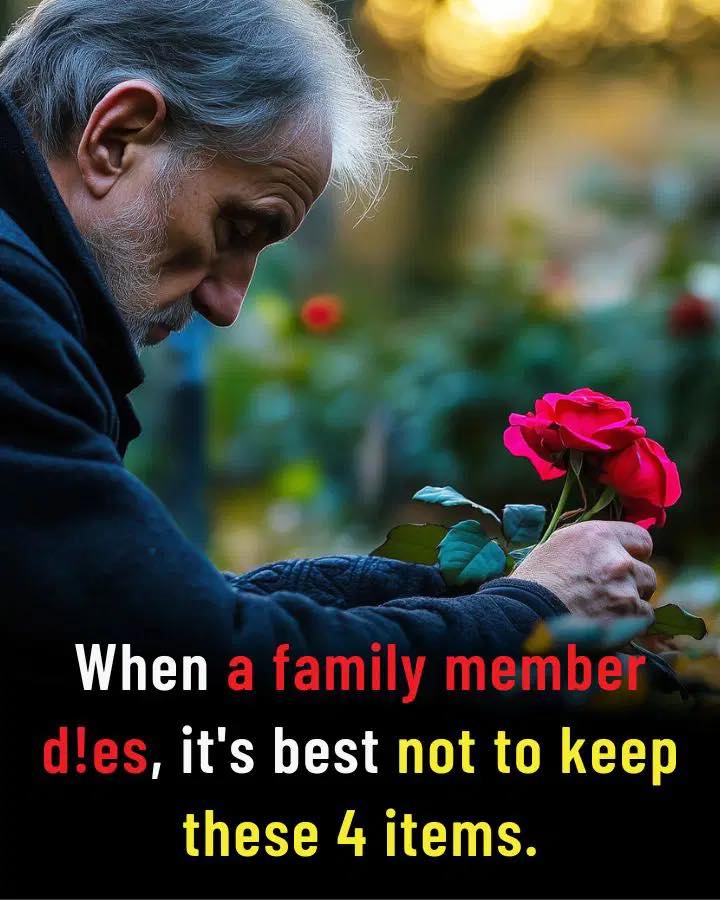 Deprecated: strip_tags(): Passing null to parameter #1 ($string) of type string is deprecated in /home/u180473161/domains/jesus.tf/public_html/wp-content/plugins/td-composer/legacy/Newspaper/loop.php on line 65
Deprecated: strip_tags(): Passing null to parameter #1 ($string) of type string is deprecated in /home/u180473161/domains/jesus.tf/public_html/wp-content/plugins/td-composer/legacy/Newspaper/loop.php on line 65

 Deprecated: strip_tags(): Passing null to parameter #1 ($string) of type string is deprecated in /home/u180473161/domains/jesus.tf/public_html/wp-content/plugins/td-composer/legacy/Newspaper/loop.php on line 65
Deprecated: strip_tags(): Passing null to parameter #1 ($string) of type string is deprecated in /home/u180473161/domains/jesus.tf/public_html/wp-content/plugins/td-composer/legacy/Newspaper/loop.php on line 65


 Deprecated: strip_tags(): Passing null to parameter #1 ($string) of type string is deprecated in /home/u180473161/domains/jesus.tf/public_html/wp-content/plugins/td-composer/legacy/Newspaper/loop.php on line 65
Deprecated: strip_tags(): Passing null to parameter #1 ($string) of type string is deprecated in /home/u180473161/domains/jesus.tf/public_html/wp-content/plugins/td-composer/legacy/Newspaper/loop.php on line 65

 Deprecated: strip_tags(): Passing null to parameter #1 ($string) of type string is deprecated in /home/u180473161/domains/jesus.tf/public_html/wp-content/plugins/td-composer/legacy/Newspaper/loop.php on line 65
Deprecated: strip_tags(): Passing null to parameter #1 ($string) of type string is deprecated in /home/u180473161/domains/jesus.tf/public_html/wp-content/plugins/td-composer/legacy/Newspaper/loop.php on line 65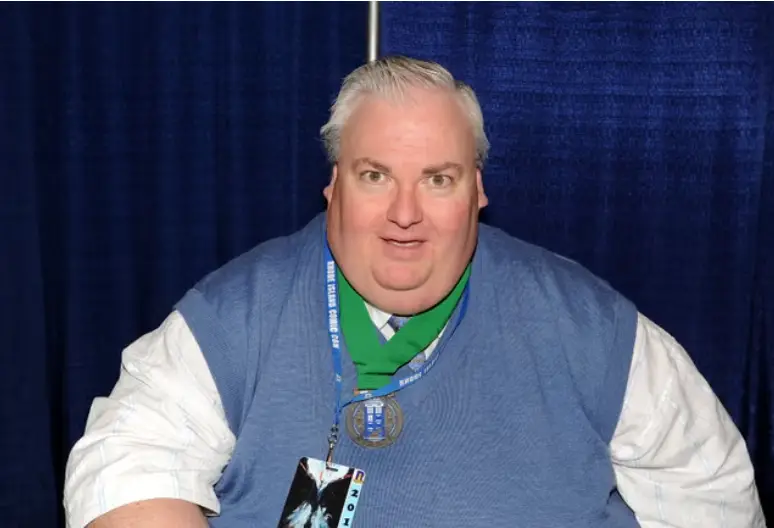


 Deprecated: strip_tags(): Passing null to parameter #1 ($string) of type string is deprecated in /home/u180473161/domains/jesus.tf/public_html/wp-content/plugins/td-composer/legacy/Newspaper/loop.php on line 65
Deprecated: strip_tags(): Passing null to parameter #1 ($string) of type string is deprecated in /home/u180473161/domains/jesus.tf/public_html/wp-content/plugins/td-composer/legacy/Newspaper/loop.php on line 65


 Deprecated: strip_tags(): Passing null to parameter #1 ($string) of type string is deprecated in /home/u180473161/domains/jesus.tf/public_html/wp-content/plugins/td-composer/legacy/Newspaper/loop.php on line 65
Deprecated: strip_tags(): Passing null to parameter #1 ($string) of type string is deprecated in /home/u180473161/domains/jesus.tf/public_html/wp-content/plugins/td-composer/legacy/Newspaper/loop.php on line 65


 Deprecated: strip_tags(): Passing null to parameter #1 ($string) of type string is deprecated in /home/u180473161/domains/jesus.tf/public_html/wp-content/plugins/td-composer/legacy/Newspaper/loop.php on line 65
Deprecated: strip_tags(): Passing null to parameter #1 ($string) of type string is deprecated in /home/u180473161/domains/jesus.tf/public_html/wp-content/plugins/td-composer/legacy/Newspaper/loop.php on line 65

 Deprecated: strip_tags(): Passing null to parameter #1 ($string) of type string is deprecated in /home/u180473161/domains/jesus.tf/public_html/wp-content/plugins/td-composer/legacy/Newspaper/loop.php on line 65
Deprecated: strip_tags(): Passing null to parameter #1 ($string) of type string is deprecated in /home/u180473161/domains/jesus.tf/public_html/wp-content/plugins/td-composer/legacy/Newspaper/loop.php on line 65

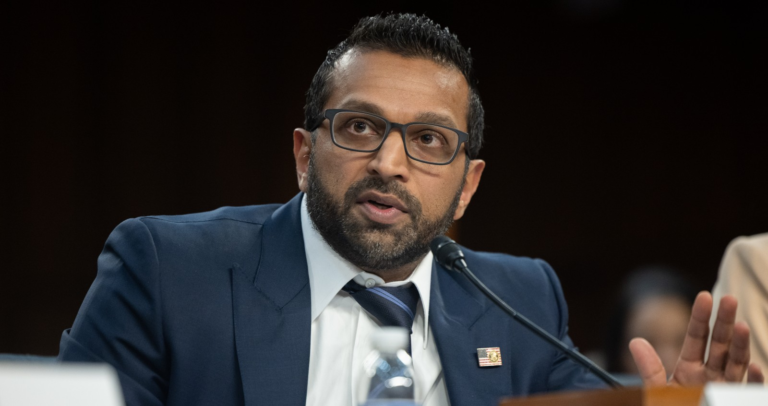 Deprecated: strip_tags(): Passing null to parameter #1 ($string) of type string is deprecated in /home/u180473161/domains/jesus.tf/public_html/wp-content/plugins/td-composer/legacy/Newspaper/loop.php on line 65
Deprecated: strip_tags(): Passing null to parameter #1 ($string) of type string is deprecated in /home/u180473161/domains/jesus.tf/public_html/wp-content/plugins/td-composer/legacy/Newspaper/loop.php on line 65
 Deprecated: strip_tags(): Passing null to parameter #1 ($string) of type string is deprecated in /home/u180473161/domains/jesus.tf/public_html/wp-content/plugins/td-composer/legacy/Newspaper/loop.php on line 65
Deprecated: strip_tags(): Passing null to parameter #1 ($string) of type string is deprecated in /home/u180473161/domains/jesus.tf/public_html/wp-content/plugins/td-composer/legacy/Newspaper/loop.php on line 65
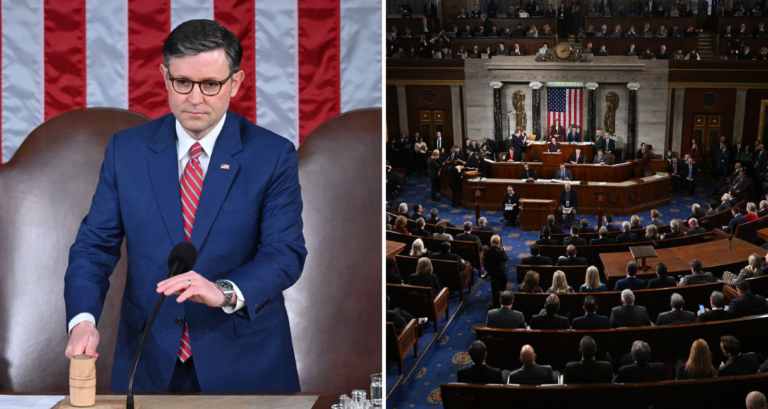 Deprecated: strip_tags(): Passing null to parameter #1 ($string) of type string is deprecated in /home/u180473161/domains/jesus.tf/public_html/wp-content/plugins/td-composer/legacy/Newspaper/loop.php on line 65
Deprecated: strip_tags(): Passing null to parameter #1 ($string) of type string is deprecated in /home/u180473161/domains/jesus.tf/public_html/wp-content/plugins/td-composer/legacy/Newspaper/loop.php on line 65
 Deprecated: strip_tags(): Passing null to parameter #1 ($string) of type string is deprecated in /home/u180473161/domains/jesus.tf/public_html/wp-content/plugins/td-composer/legacy/Newspaper/loop.php on line 65
Deprecated: strip_tags(): Passing null to parameter #1 ($string) of type string is deprecated in /home/u180473161/domains/jesus.tf/public_html/wp-content/plugins/td-composer/legacy/Newspaper/loop.php on line 65
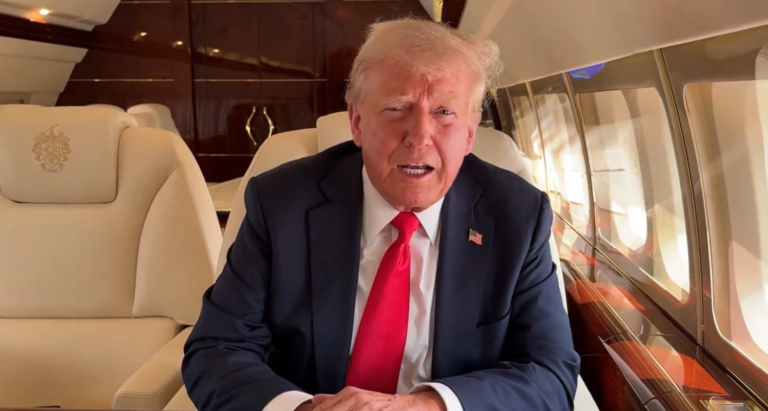 Deprecated: strip_tags(): Passing null to parameter #1 ($string) of type string is deprecated in /home/u180473161/domains/jesus.tf/public_html/wp-content/plugins/td-composer/legacy/Newspaper/loop.php on line 65
Deprecated: strip_tags(): Passing null to parameter #1 ($string) of type string is deprecated in /home/u180473161/domains/jesus.tf/public_html/wp-content/plugins/td-composer/legacy/Newspaper/loop.php on line 65
 Deprecated: strip_tags(): Passing null to parameter #1 ($string) of type string is deprecated in /home/u180473161/domains/jesus.tf/public_html/wp-content/plugins/td-composer/legacy/Newspaper/loop.php on line 65
Deprecated: strip_tags(): Passing null to parameter #1 ($string) of type string is deprecated in /home/u180473161/domains/jesus.tf/public_html/wp-content/plugins/td-composer/legacy/Newspaper/loop.php on line 65
 Deprecated: strip_tags(): Passing null to parameter #1 ($string) of type string is deprecated in /home/u180473161/domains/jesus.tf/public_html/wp-content/plugins/td-composer/legacy/Newspaper/loop.php on line 65
Deprecated: strip_tags(): Passing null to parameter #1 ($string) of type string is deprecated in /home/u180473161/domains/jesus.tf/public_html/wp-content/plugins/td-composer/legacy/Newspaper/loop.php on line 65

 Deprecated: strip_tags(): Passing null to parameter #1 ($string) of type string is deprecated in /home/u180473161/domains/jesus.tf/public_html/wp-content/plugins/td-composer/legacy/Newspaper/loop.php on line 65
Deprecated: strip_tags(): Passing null to parameter #1 ($string) of type string is deprecated in /home/u180473161/domains/jesus.tf/public_html/wp-content/plugins/td-composer/legacy/Newspaper/loop.php on line 65


 Deprecated: strip_tags(): Passing null to parameter #1 ($string) of type string is deprecated in /home/u180473161/domains/jesus.tf/public_html/wp-content/plugins/td-composer/legacy/Newspaper/loop.php on line 65
Deprecated: strip_tags(): Passing null to parameter #1 ($string) of type string is deprecated in /home/u180473161/domains/jesus.tf/public_html/wp-content/plugins/td-composer/legacy/Newspaper/loop.php on line 65
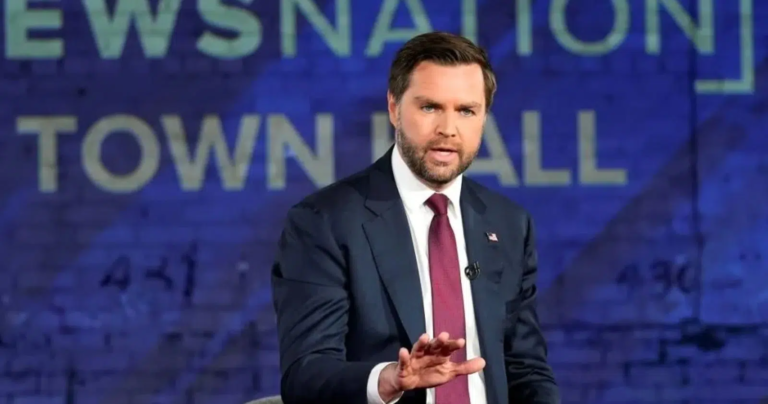 Deprecated: strip_tags(): Passing null to parameter #1 ($string) of type string is deprecated in /home/u180473161/domains/jesus.tf/public_html/wp-content/plugins/td-composer/legacy/Newspaper/loop.php on line 65
Deprecated: strip_tags(): Passing null to parameter #1 ($string) of type string is deprecated in /home/u180473161/domains/jesus.tf/public_html/wp-content/plugins/td-composer/legacy/Newspaper/loop.php on line 65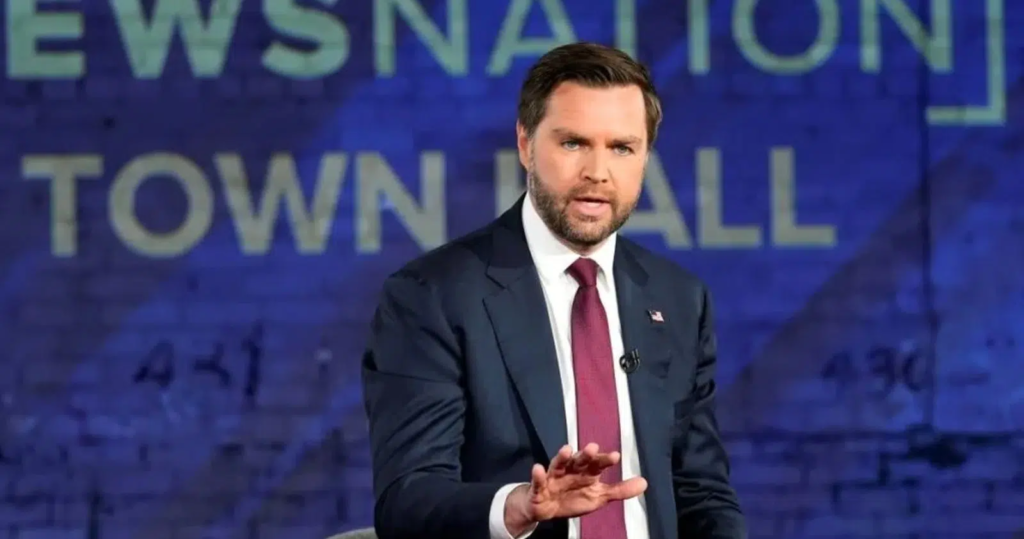
 Deprecated: strip_tags(): Passing null to parameter #1 ($string) of type string is deprecated in /home/u180473161/domains/jesus.tf/public_html/wp-content/plugins/td-composer/legacy/Newspaper/loop.php on line 65
Deprecated: strip_tags(): Passing null to parameter #1 ($string) of type string is deprecated in /home/u180473161/domains/jesus.tf/public_html/wp-content/plugins/td-composer/legacy/Newspaper/loop.php on line 65
 Deprecated: strip_tags(): Passing null to parameter #1 ($string) of type string is deprecated in /home/u180473161/domains/jesus.tf/public_html/wp-content/plugins/td-composer/legacy/Newspaper/loop.php on line 65
Deprecated: strip_tags(): Passing null to parameter #1 ($string) of type string is deprecated in /home/u180473161/domains/jesus.tf/public_html/wp-content/plugins/td-composer/legacy/Newspaper/loop.php on line 65
:max_bytes(150000):strip_icc():focal(737x460:739x462):format(webp)/Amber-Ruffin-040625-08493ce202a342a4bc1cc3e40cc2d619.jpg)



 Deprecated: strip_tags(): Passing null to parameter #1 ($string) of type string is deprecated in /home/u180473161/domains/jesus.tf/public_html/wp-content/plugins/td-composer/legacy/Newspaper/loop.php on line 65
Deprecated: strip_tags(): Passing null to parameter #1 ($string) of type string is deprecated in /home/u180473161/domains/jesus.tf/public_html/wp-content/plugins/td-composer/legacy/Newspaper/loop.php on line 65 Deprecated: strip_tags(): Passing null to parameter #1 ($string) of type string is deprecated in /home/u180473161/domains/jesus.tf/public_html/wp-content/plugins/td-composer/legacy/Newspaper/loop.php on line 65
Deprecated: strip_tags(): Passing null to parameter #1 ($string) of type string is deprecated in /home/u180473161/domains/jesus.tf/public_html/wp-content/plugins/td-composer/legacy/Newspaper/loop.php on line 65 Deprecated: strip_tags(): Passing null to parameter #1 ($string) of type string is deprecated in /home/u180473161/domains/jesus.tf/public_html/wp-content/plugins/td-composer/legacy/Newspaper/loop.php on line 65
Deprecated: strip_tags(): Passing null to parameter #1 ($string) of type string is deprecated in /home/u180473161/domains/jesus.tf/public_html/wp-content/plugins/td-composer/legacy/Newspaper/loop.php on line 65 Deprecated: strip_tags(): Passing null to parameter #1 ($string) of type string is deprecated in /home/u180473161/domains/jesus.tf/public_html/wp-content/plugins/td-composer/legacy/Newspaper/loop.php on line 65
Deprecated: strip_tags(): Passing null to parameter #1 ($string) of type string is deprecated in /home/u180473161/domains/jesus.tf/public_html/wp-content/plugins/td-composer/legacy/Newspaper/loop.php on line 65

 Deprecated: strip_tags(): Passing null to parameter #1 ($string) of type string is deprecated in /home/u180473161/domains/jesus.tf/public_html/wp-content/plugins/td-composer/legacy/Newspaper/loop.php on line 65
Deprecated: strip_tags(): Passing null to parameter #1 ($string) of type string is deprecated in /home/u180473161/domains/jesus.tf/public_html/wp-content/plugins/td-composer/legacy/Newspaper/loop.php on line 65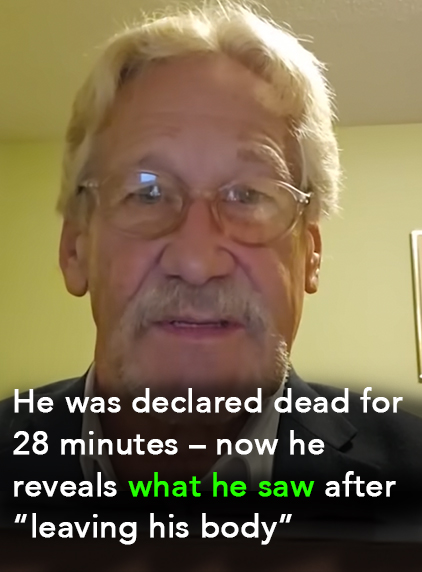 Deprecated: strip_tags(): Passing null to parameter #1 ($string) of type string is deprecated in /home/u180473161/domains/jesus.tf/public_html/wp-content/plugins/td-composer/legacy/Newspaper/loop.php on line 65
Deprecated: strip_tags(): Passing null to parameter #1 ($string) of type string is deprecated in /home/u180473161/domains/jesus.tf/public_html/wp-content/plugins/td-composer/legacy/Newspaper/loop.php on line 65
 Deprecated: strip_tags(): Passing null to parameter #1 ($string) of type string is deprecated in /home/u180473161/domains/jesus.tf/public_html/wp-content/plugins/td-composer/legacy/Newspaper/loop.php on line 65
Deprecated: strip_tags(): Passing null to parameter #1 ($string) of type string is deprecated in /home/u180473161/domains/jesus.tf/public_html/wp-content/plugins/td-composer/legacy/Newspaper/loop.php on line 65

 Deprecated: strip_tags(): Passing null to parameter #1 ($string) of type string is deprecated in /home/u180473161/domains/jesus.tf/public_html/wp-content/plugins/td-composer/legacy/Newspaper/loop.php on line 65
Deprecated: strip_tags(): Passing null to parameter #1 ($string) of type string is deprecated in /home/u180473161/domains/jesus.tf/public_html/wp-content/plugins/td-composer/legacy/Newspaper/loop.php on line 65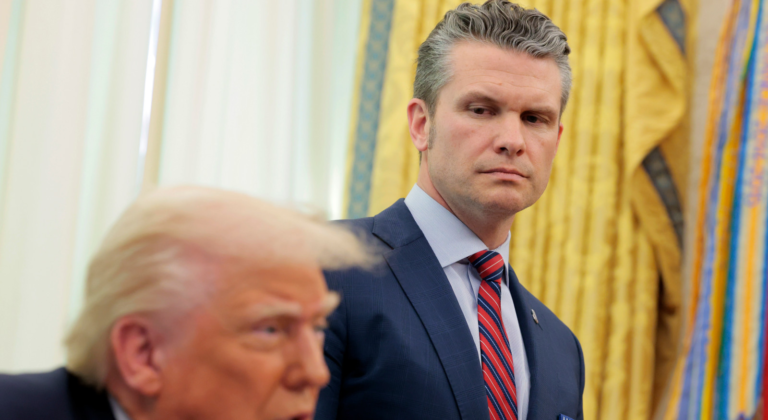 Deprecated: strip_tags(): Passing null to parameter #1 ($string) of type string is deprecated in /home/u180473161/domains/jesus.tf/public_html/wp-content/plugins/td-composer/legacy/Newspaper/loop.php on line 65
Deprecated: strip_tags(): Passing null to parameter #1 ($string) of type string is deprecated in /home/u180473161/domains/jesus.tf/public_html/wp-content/plugins/td-composer/legacy/Newspaper/loop.php on line 65
 Deprecated: strip_tags(): Passing null to parameter #1 ($string) of type string is deprecated in /home/u180473161/domains/jesus.tf/public_html/wp-content/plugins/td-composer/legacy/Newspaper/loop.php on line 65
Deprecated: strip_tags(): Passing null to parameter #1 ($string) of type string is deprecated in /home/u180473161/domains/jesus.tf/public_html/wp-content/plugins/td-composer/legacy/Newspaper/loop.php on line 65
 Deprecated: strip_tags(): Passing null to parameter #1 ($string) of type string is deprecated in /home/u180473161/domains/jesus.tf/public_html/wp-content/plugins/td-composer/legacy/Newspaper/loop.php on line 65
Deprecated: strip_tags(): Passing null to parameter #1 ($string) of type string is deprecated in /home/u180473161/domains/jesus.tf/public_html/wp-content/plugins/td-composer/legacy/Newspaper/loop.php on line 65 Deprecated: strip_tags(): Passing null to parameter #1 ($string) of type string is deprecated in /home/u180473161/domains/jesus.tf/public_html/wp-content/plugins/td-composer/legacy/Newspaper/loop.php on line 65
Deprecated: strip_tags(): Passing null to parameter #1 ($string) of type string is deprecated in /home/u180473161/domains/jesus.tf/public_html/wp-content/plugins/td-composer/legacy/Newspaper/loop.php on line 65


 Deprecated: strip_tags(): Passing null to parameter #1 ($string) of type string is deprecated in /home/u180473161/domains/jesus.tf/public_html/wp-content/plugins/td-composer/legacy/Newspaper/loop.php on line 65
Deprecated: strip_tags(): Passing null to parameter #1 ($string) of type string is deprecated in /home/u180473161/domains/jesus.tf/public_html/wp-content/plugins/td-composer/legacy/Newspaper/loop.php on line 65





 Deprecated: strip_tags(): Passing null to parameter #1 ($string) of type string is deprecated in /home/u180473161/domains/jesus.tf/public_html/wp-content/plugins/td-composer/legacy/Newspaper/loop.php on line 65
Deprecated: strip_tags(): Passing null to parameter #1 ($string) of type string is deprecated in /home/u180473161/domains/jesus.tf/public_html/wp-content/plugins/td-composer/legacy/Newspaper/loop.php on line 65 Deprecated: strip_tags(): Passing null to parameter #1 ($string) of type string is deprecated in /home/u180473161/domains/jesus.tf/public_html/wp-content/plugins/td-composer/legacy/Newspaper/loop.php on line 65
Deprecated: strip_tags(): Passing null to parameter #1 ($string) of type string is deprecated in /home/u180473161/domains/jesus.tf/public_html/wp-content/plugins/td-composer/legacy/Newspaper/loop.php on line 65 Deprecated: strip_tags(): Passing null to parameter #1 ($string) of type string is deprecated in /home/u180473161/domains/jesus.tf/public_html/wp-content/plugins/td-composer/legacy/Newspaper/loop.php on line 65
Deprecated: strip_tags(): Passing null to parameter #1 ($string) of type string is deprecated in /home/u180473161/domains/jesus.tf/public_html/wp-content/plugins/td-composer/legacy/Newspaper/loop.php on line 65 Deprecated: strip_tags(): Passing null to parameter #1 ($string) of type string is deprecated in /home/u180473161/domains/jesus.tf/public_html/wp-content/plugins/td-composer/legacy/Newspaper/loop.php on line 65
Deprecated: strip_tags(): Passing null to parameter #1 ($string) of type string is deprecated in /home/u180473161/domains/jesus.tf/public_html/wp-content/plugins/td-composer/legacy/Newspaper/loop.php on line 65